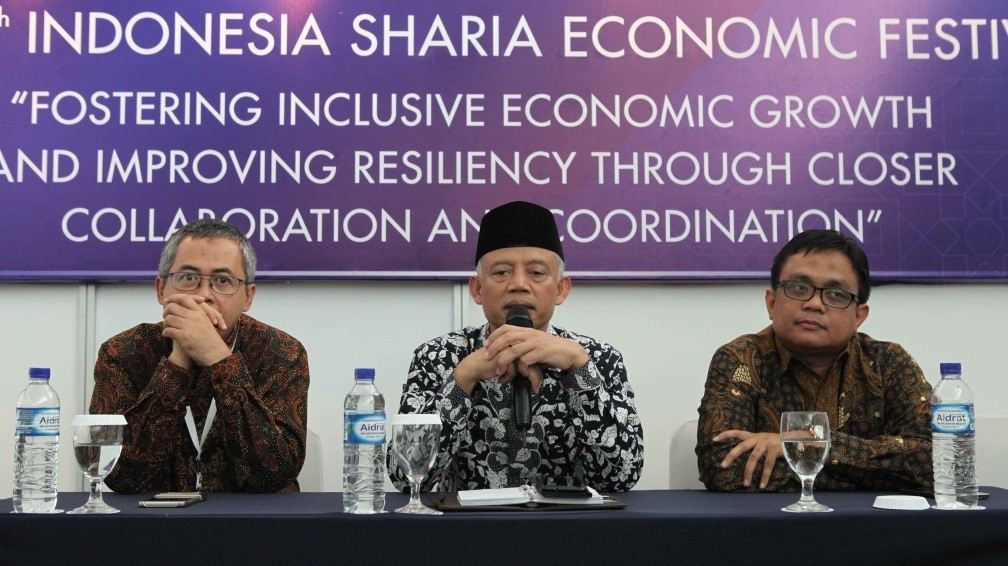Unlocking cash waqf potential in Indonesia
As waqf are also open to non-Muslims, waqf stakeholders can also benefit from non-Muslim rich people.
Change Size

T
hree months since President Joko “Jokowi” Widodo launched the National Cash Waqf Movement (GNWU), the public response has been lukewarm at best. This is reflected in the amount of cash that the GNWU has received, which at the time of writing was just over Rp 58 million from 74 waqif (donors).
The harsh reality of the early drive for the GNWU is very ironic given the potential amount touted by waqf stakeholders, which has been estimated at Rp 180 trillion. Why is this so, and how should this situation be addressed to avoid a failure like that of the first GNWU, which was launched in 2010?
Waqf stakeholders have to find better solutions to unlock the potential of cash waqf, instead of relying on the normal formula of increasing waqf literacy and raising public awareness about participating in cash waqf through various platforms.
As far as we are concerned, three important programs should be implemented immediately to address the lackluster response to the GNWU. They are waqf of sultans, temporary waqf from rich people and the conversion of corporate social responsibility (CSR) funds from state-owned enterprises (SOEs) into waqf.
One of the most important features in the past success of the institution of waqf was the widespread practice of waqf by prominent people such as ministers, princes, their wives and mothers. This type of waqf is known as Awqaf al-Salatiyn (waqf of sultans). As an example, Harun al-Rashid’s wife created many waqf assets in the form of roads, bridges, land and water supply for pilgrims. One of those assets is known as the well of Zubaidah in Mecca, which was named after her.
In the Indonesian context, waqf stakeholders must be able to convince the President, Vice President, Cabinet ministers, boards of directors and boards of commissioners of SOEs, governors, mayors and other high-ranking officials, as well as prominent persons nationwide to create cash waqf. It is recommended that these prominent people give away at least one month of their salary as cash waqf. The creation of cash waqf by these individuals will ensure that the quantity of cash waqf collections is enormous, while at the same time encouraging the masses to follow the example set by these people.
The second program is the creation of a temporary cash waqf by rich people. One of the unique features of waqf is the ruling that waqf can be temporary. This opens up many opportunities to unlock the potential of cash waqf. Rich people can create a cash waqf, say for three to five years, by giving their money to waqf institutions to be invested accordingly. The profit or revenue generated can be distributed to the specified beneficiaries and be used to create new waqf projects. The percentage of revenue utilization is flexible and can be specified upfront by the people who create the temporary cash waqf.
There are so many rich people in the country who could be persuaded to create temporary cash waqf for a certain period. As waqf are also open to non-Muslims, waqf stakeholders can also benefit from non-Muslim rich people. At the end of the period, the money will return to them, while the revenue will be placed in new waqf assets.
In addition to rich people, business entities, small and large, are other parties that waqf stakeholders can work with in the cash waqf program by creating temporary cash waqf.
The conversion of SOEs’ CSR funds into waqf is a feasible option. During a hearing with House of Representatives commission VIII on March 22, the Indonesian Waqf Board (BWI) stated that the potential of SOEs’ CSR funds could be up to Rp 6.65 trillion a year. Imagine if the funds were converted into a cash waqf. The waqf stakeholders would have a hefty amount to manage.
Of course, waqf stakeholders, especially the BWI, have to work hand in hand with other stakeholders to woo the SOEs. When collected, the cash waqf from the converted CSR fund could be managed by SOEs like Pos Indonesia, whose network covers more than 40 percent of villages nationwide and includes some 4,800 post offices across the country – the largest coverage among business institutions.
As our President and Vice President are the driving forces of the GNWU, the three programs above should start sooner rather than later. The successful implementation of the programs would quickly increase the market share of cash waqf, which is very small now compared to its potential.
In implementing these programs, waqf stakeholders should be able to show accountability and transparency in governing the cash waqf, including in collections for the fund, management, reporting, disbursement and impact reporting. The ability of donors to check the movements of the fund at every stage will increase trust in cash waqf governance.
The time has come for waqf stakeholders in the country to explore new and different approaches in the collection of cash waqf funds. We believe that the ability of cash waqf to reach its true potential in Indonesia depends on the three programs above.
The successful delivery of these programs will assure stakeholders of significant waqf funds faster and will build public trust, which in turn will encourage the public to contribute to the programs.
***
Fahmi M. Nasir is the founder of the Jeumpa D’Meusara (JDM) Waqf Research and Consultancy Center in Banda Aceh and a doctoral student in waqf law and governance at the Ahmad Ibrahim Kulliyyah of Laws (AIKOL), International Islamic University Malaysia (IIUM). Nezar Patria is director of institutional affairs at Pos Indonesia.









